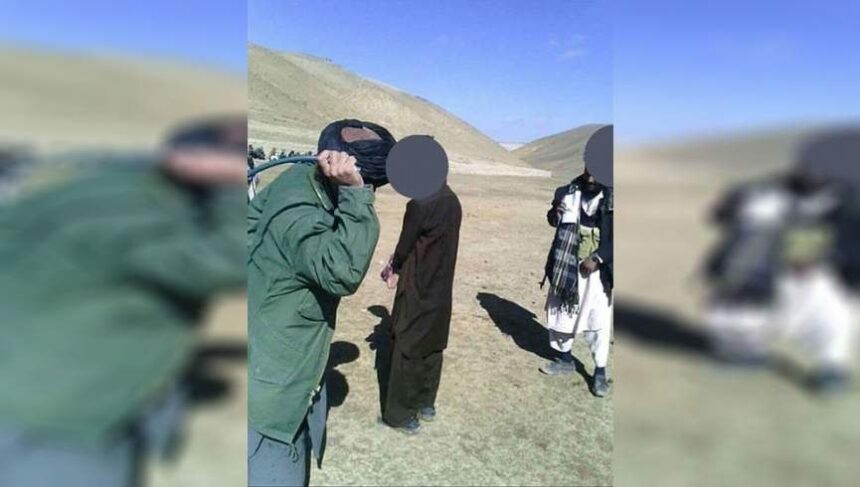RASC News Agency: In yet another disturbing display of public punishment, the Taliban regime has subjected 13 individuals to public flogging in the Mir Bacha Kot district of Kabul. The beatings, carried out on Thursday, reportedly stemmed from charges of drug trafficking and gambling allegations often levied without due process in the group’s opaque judicial system. According to a statement released by the Taliban’s so-called “courts,” six of the accused received between 15 and 30 lashes, while the remaining seven were beaten with 10 to 25 lashes each. In addition to corporal punishment, seven of the individuals have been sentenced to prison terms ranging from one year to one year and eight months.
These punishments were meted out in full public view an increasingly common tactic employed by the Taliban under the guise of enforcing what they claim are “Islamic legal boundaries.” In reality, such actions serve as a form of intimidation and social control, designed to instill fear among the population and project an illusion of moral authority. International human rights organizations have responded with alarm, condemning the Taliban’s continued use of cruel and degrading punishments. Multiple global watchdogs have warned that public lashings and other forms of physical punishment violate international human rights norms and constitute a flagrant assault on human dignity.
The United Nations Assistance Mission in Afghanistan (UNAMA) previously reported that, within just the first three months of this year, the Taliban carried out at least 180 public punishments across various cities. Since then, the number of such incidents has continued to climb, with dozens more individuals subjected to flogging or imprisonment without transparent legal procedures. This accelerating pattern of retributive justice underscores the Taliban’s unwillingness to adhere to modern legal standards or respond to mounting international pressure. Instead, the group appears to be doubling down on its archaic and punitive judicial practices, weaponizing religion as a tool of coercion rather than a framework for justice.
As Afghanistan continues to descend into authoritarian rule, the Taliban’s escalating brutality has turned public spaces into theatres of humiliation further deepening the country’s humanitarian crisis and isolating its people from the basic protections of law, dignity, and due process.






